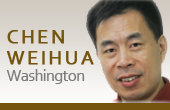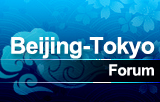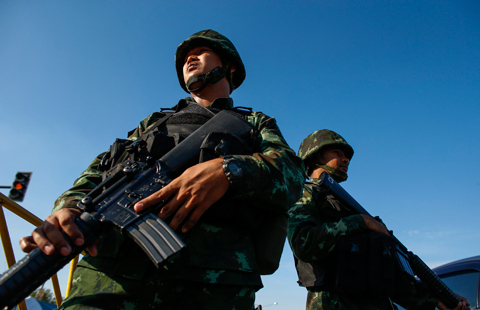Japan's accusation against China only excuse for military build-up
(Xinhua) Updated: 2014-06-15 08:01Meanwhile, Japanese Prime Minister Shinzo Abe is pushing to amend the country's pacifist constitution, which bans Japanese Self-Defense Forces (SDF) fighting overseas, so as to enable Japan to exercise its right to collective self-defense.
In an attempt to justify Japan's military build-up, the country's right-wing forces are in dire need of a fabricated "external threat," even an "enemy state."
Therefore, instead of reflecting on its own mistakes, Japan has been repeatedly making remarks that totally distort facts, maliciously attacking China and intentionally deceiving the world.
Considering Japan's recent moves to amend its pacifist constitution, expand its military, play up regional threats, and produce tension and confrontation, the international community needs to have a clear mind on and keep high alert to Japan's real intention.
Abe's drive for a change in Japan's defense policy also triggered domestic concerns over his government's military stance.
Japan's ruling Liberal Democratic Party (LDP) and its junior coalition ally, New Komeito, on Tuesday remained at odds over whether the nation should be able to exercise the right to collective self-defense, potentially stalling Abe's push for his Cabinet to green light the move before the current Diet session ends on June 22.
On Thursday, Banri Kaieda, the leader of the largest opposition group, the Democratic Party of Japan, said Abe's attempt could cause a major shift in "Japan's security policy that is based on pacifism," adding the prime minister was "trying to risk people's lives instead of protecting them."
Kaieda's criticism came two days after a speech delivered by Japanese Nobel Laureate Kenzaburo Oe, who said the likelihood Japan would become involved in war would grow if it started making preparations and that "we need to prepare for peace if we seek it."
What Abe wants is a revival of militarism, even at the cost of the interests of other countries, which ultimately leads to the aggravation of regional tensions.
As a Chinese proverb goes: "On-lookers see most of the game." James Chanos, a prominent US hedge fund manager, called Abe the most dangerous figure in Asia at a conference in Las Vegas last month, saying the Japanese prime minister was an "ultranationalist" due to his plan to rearm his country.
In an editorial, The New York Times also described Abe's historical revisionism and nationalism as a "dangerous" complex, setting off alarm bells for the United States.
Chanos' judgement on Abe is a warning not only for investors, but also for international observers who pay close attention to the security situation in the Asia-Pacific.
For the Japanese government, it should immediately stop creating tensions in the region to avoid dangerous consequences.










